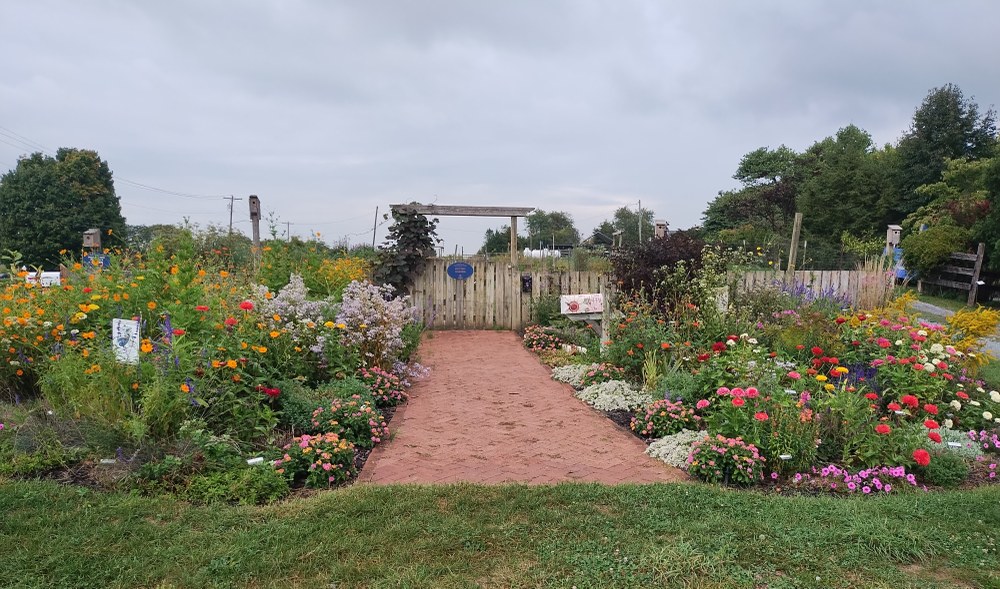The Pollinator Friendly Garden was installed and designed for basic research to document populations of native pollinators and which plants attract them.

Pollinator Friendly Garden
The Pollinator Friendly Garden includes a wide variety of plants that support pollinators and demonstrates garden designs for city streets and country roads.
In 2008, Penn State was awarded a grant by Haagen-Dazs to help address concerns raised by the sudden appearance of what has been termed Colony Collapse Disorder in honeybees. An area under study from that grant is the basic research to document populations of native pollinators and find out which plants and their cultivars attract which pollinators.
Master Gardeners throughout the state have established these pollinator friendly gardens and regularly document which bees and pollinating insects are visiting the plants.
Each garden throughout the state has a mandatory list of plant material that must be grown for control research purposes, plus the freedom to design with additional material, at the discretion of the local county.
The data is sent to researchers at the College of Ag Sciences at the University who collate and study the information for potential use of alternatives to honeybees for pollination. Signage provides useful information to educate the public on the importance of pollinators, and to encourage the use of these pollinator friendly varieties in their home gardens.
Originally, this space was installed in 2002 as a decorative entrance to the fenced vegetable garden area. It served as a demonstration of drought tolerant gardening plants in the years 2007 and 2008 then was converted to its current purpose in 2009.
In 2017, the garden was redesigned to demonstrate two different garden designs for different locations. Divided by a brick walkway, the right side shows a structured plan that would be appropriate for in town or communities with landscape restrictions. A highlight of this area is a seasonal working fountain that attracts birds and a birdhouse on the fence. The left side reflects a natural mix of plants that would suit a meadow or rural area. A pathway and small bench invite visitors to come into the garden. The garden is designated Monarch Waystation.
The garden is used for pollinator, native plant, and garden design classes and talks as well as a pollinator research resource.

